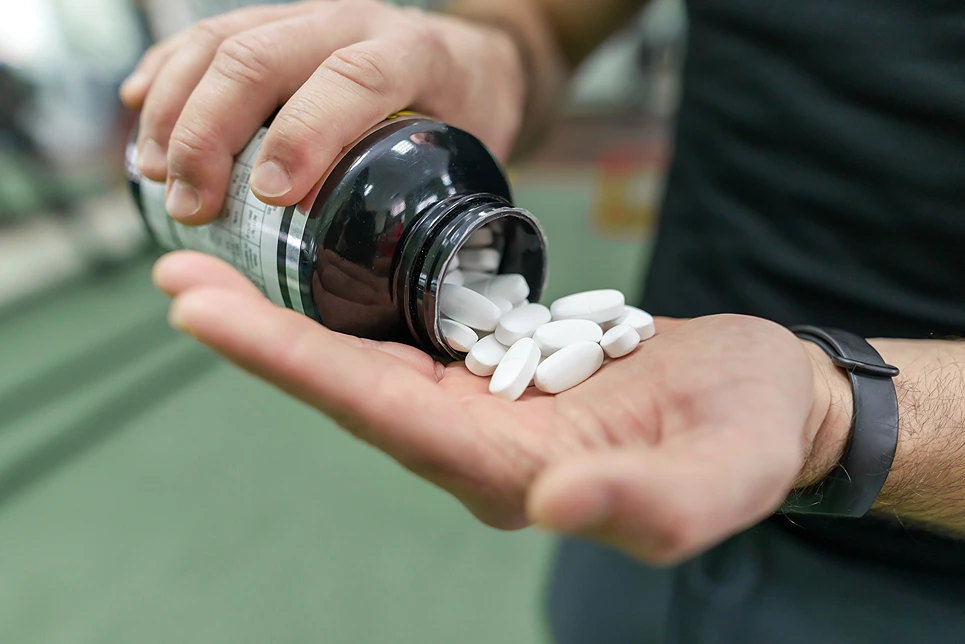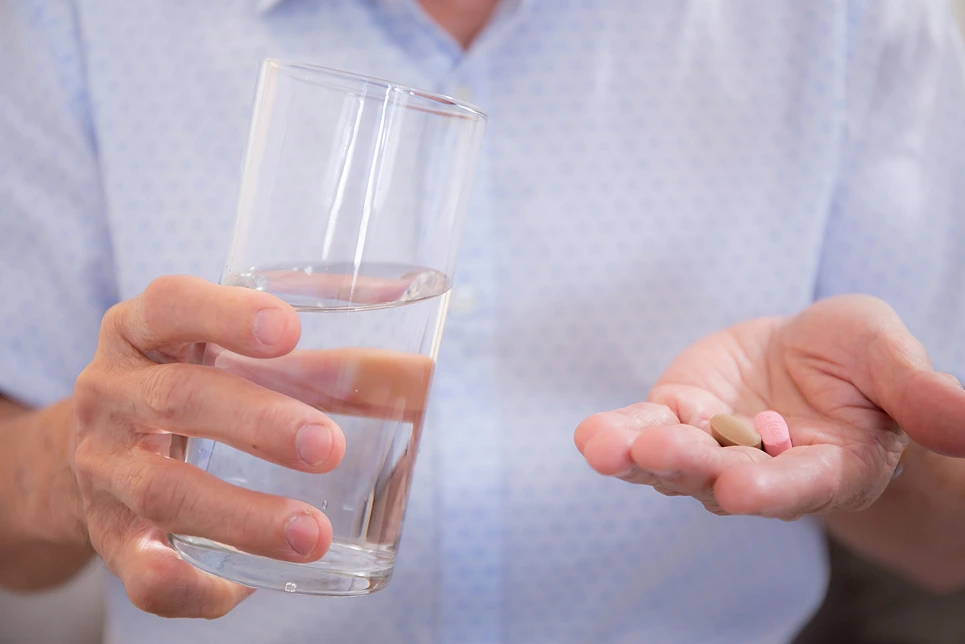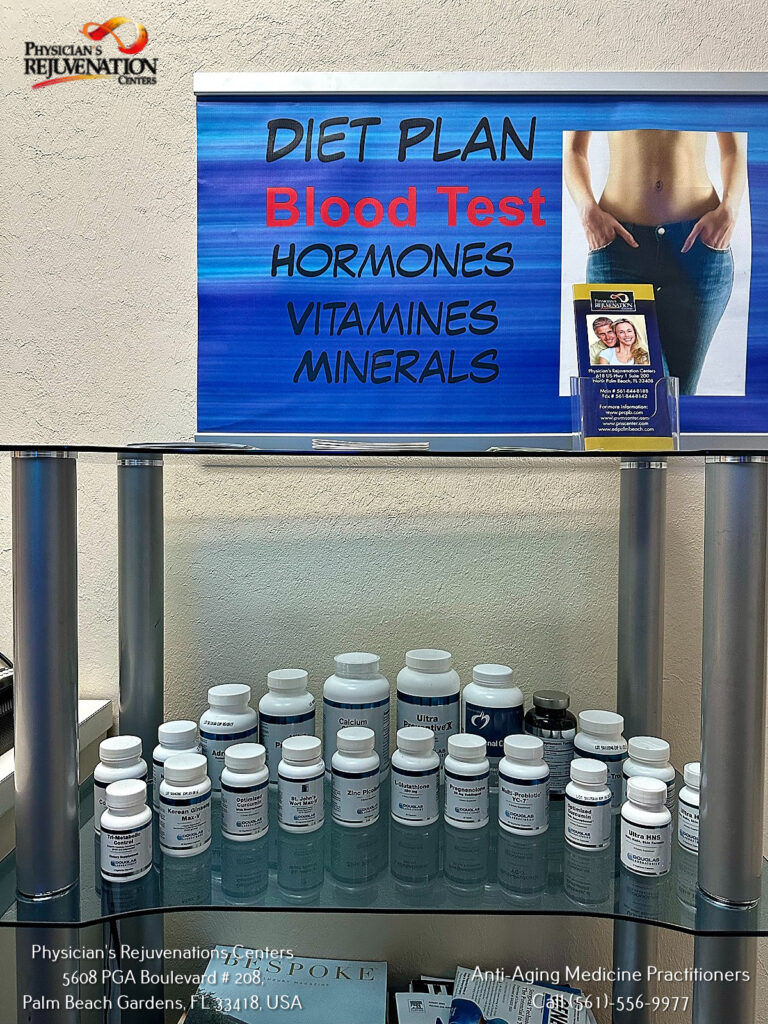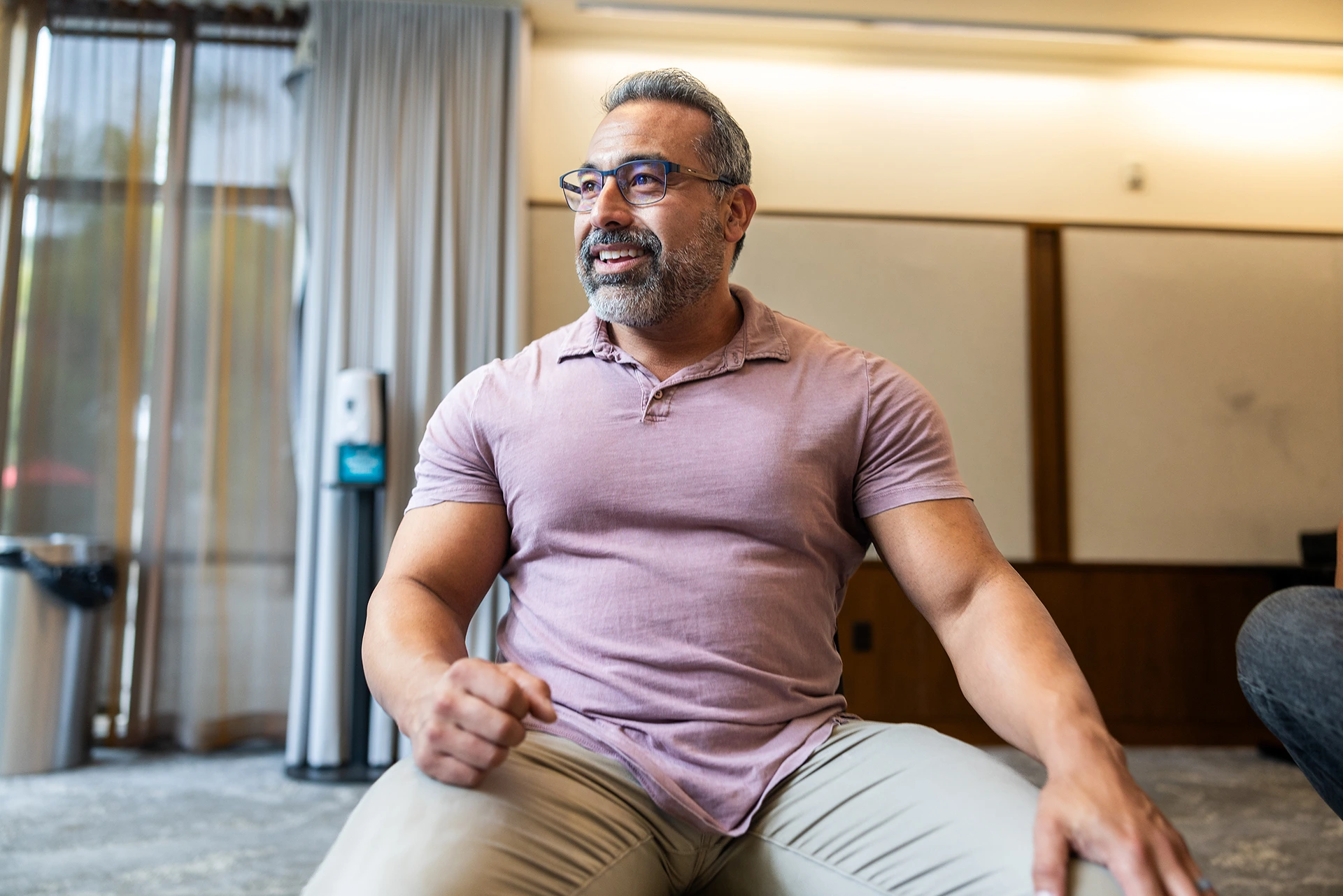Learn which solution is best for safely and effectively managing your symptoms.
Prescription testosterone replacement therapy is proven to work for increasing low testosterone levels caused by medical conditions, while supplements may help mildly but lack solid evidence.
What Exactly Is Testosterone Replacement Therapy?

Testosterone replacement therapy (TRT) is a treatment prescribed and monitored by doctors to raise testosterone levels in men. It is approved to treat clinically diagnosed testosterone deficiency.
TRT provides testosterone directly into the body through:
Injections
Testosterone injections, usually cypionate or enanthate, are given intramuscularly once every 1-2 weeks. Many men report pain with injections.
Transdermal gels
Gels supply testosterone through the skin. Popular brands are Androgel and Testim. Skin irritation may occur.
Patches
Adhesive patches applied on the arms, back or thighs. Testosterone absorbs through the skin.may be irritating.
Pellets
Pellets implanted under the skin every 3-6 months. Requires a medical procedure.
Oral capsules
Taken daily, testosterone undecanoate (Jatenzo) absorbs through the intestines. Liver toxicity may occur.
TRT aims to return testosterone levels to a healthy normal range, providing benefits like:
- Increased muscle mass and strength
- Improved mood and cognitive function
- More energy and endurance
- Better libido and erectile function
But it’s important to note that TRT also carries risks like enlarged prostate, cardiovascular problems, sleep apnea, and reduced sperm production.
TRT must be prescribed by a doctor and requires regular blood testing to monitor effects and adjust dosing. It can be costly, ranging from $50 to $1500 monthly without insurance.
Weighing the Pros and Cons of Testosterone Therapy
TRT offers a proven way to raise low testosterone, but also has some downsides. Let’s examine the key pros and cons:
Pros of TRT
- Alleviates low T symptoms like low libido, erectile dysfunction, and mood problems
- Builds muscle mass and strength
- Increases bone mineral density
- Improves energy levels, endurance and mental focus
- May help heart health by improving cholesterol
- Prescribed and monitored by doctors for safety
Cons of TRT
- Requires injections or topical applications
- Can suppress natural testosterone production
- May shrink testicles and reduce fertility
- Skin irritation or pain may occur at application sites
- Increased risk of enlarged prostate (BPH) and prostate cancer
- Potential for cardiovascular issues like blood clots
- Can worsen sleep apnea
- Requires regular doctor visits for monitoring
- Expensive out of pocket costs, even with insurance
Clearly, TRT offers proven benefits but also poses risks. Work closely with your doctor to determine if it’s appropriate for you.
What Are Testosterone Supplements?

Testosterone supplements are over-the-counter products marketed to boost testosterone naturally. Some common ingredients are:
- D-Aspartic Acid – An amino acid that may mildly increase testosterone
- Vitamin D – Helps regulate testosterone production
- Zinc – Important for testosterone synthesis
- Magnesium – Shown to mildly boost testosterone
- Fenugreek – Herb with weak evidence for raising T
- Tribulus – Herb popular in supplements but with no proof of efficacy
- Ashwagandha – Adaptogenic herb that may lower cortisol
- Maca – Lepidium meyenii is a medicinal Peruvian plant
These supplements are easier to obtain than TRT, but evidence is lacking for major testosterone benefits in healthy men. While marketing promises gains in libido, strength, endurance, and vitality, studies show minimal effects on testosterone.
Let’s look at the upsides and downsides of over-the-counter testosterone supplements:
Pros of Testosterone Supplements
- Easily purchased without prescriptions
- Generally less expensive than TRT
- Fewer potential side effects than TRT
- Easy to take pill or powder form
Cons of Testosterone Supplements
- Questionable effectiveness
- Lack of regulation and oversight
- Proprietary formulas may hide invalid dosages
- Minimal evidence for raising testosterone
- Unknown long-term safety profile
While affordable and accessible, testosterone supplements may not significantly improve T levels. More research is needed to verify their use for low testosterone.
Comparing Testosterone Therapy vs. Supplements
So how do testosterone therapy and supplements stack up against each other? Here’s a concise comparison:
| Factor | Testosterone Therapy | Testosterone Supplements |
| Effectiveness | Proven increases in testosterone | Little evidence for raising T |
| Safety | Risks exist but doctors monitor | Unknown, lack of regulation |
| Cost | Expensive even with insurance | Cheap, $40-$70 per bottle |
| Convenience | Doctor visits required | Easily purchased over counter |
| Candidates | Men with clinically low testosterone | Unproven for deficiency |
Key Takeaways
- TRT clearly raises low testosterone due to medical conditions
- Supplements may provide mild benefits but lack solid proof
- TRT has more risks but is also closely monitored
- Supplements are cheaper and easier to obtain
Talk to your doctor to see if testosterone therapy or supplements may help. Get a blood test to verify hormone levels.
Who Should Consider Testosterone Therapy?
Testosterone replacement is specifically approved for men with clinically low testosterone confirmed by lab testing. Symptoms may include:
- Low libido and erectile dysfunction
- Fatigue, low energy levels
- Loss of muscle mass and strength
- Increased body fat, difficulty losing weight
- Depression, mood swings, irritability
- Poor concentration and “brain fog”
TRT can help when low T is caused by medical conditions like:
- Hypogonadism from testicular injury, cancer treatment, or genetic disorders
- Pituitary gland problems
- Obesity
- Chronic illnesses like kidney failure or HIV
- Type 2 diabetes
If you suffer low T symptoms, ask your doctor about a simple blood test to check your total and free testosterone levels.
Men over 40 may experience a gradual decline in testosterone due to aging. Discuss the pros and cons of TRT with your physician.
Who Might Consider Testosterone Supplements?

The evidence for testosterone supplements raising T levels is weak at best. Healthy men are unlikely to see major benefits.
However, some men choose supplements since they are affordable and easy to obtain. Those with mild age-related T decline may seek over-the-counter options before considering TRT.
Speak to your doctor first before trying supplements marketed to boost testosterone. Make sure to have your levels tested.
Supplements lack evidence but some men report subjective benefits like increased energy, better libido, and feeling healthier.
The placebo effect may play a role as well. In truth, quality research on testosterone supplements is limited.
Deciding Between Testosterone Therapy vs. Supplements
Choosing whether to pursue TRT, testosterone supplements, or no treatment can be challenging. Follow this process to decide wisely:
Get tested
Have your total and free testosterone levels measured via blood work. This verifies if you are truly clinically deficient.
Assess symptoms
Note any low T symptoms like low libido, erectile dysfunction, fatigue, and mood issues. Track changes over time.
Discuss with your doctor
Review options like TRT and supplements. Understand potential benefits, risks, and side effects.
Try lifestyle changes
Improve diet, exercise, sleep, stress, and unhealthy habits to naturally raise testosterone over 3-6 months.
Weigh pros and cons
Consider costs, effectiveness, convenience, invasiveness, and health risks when deciding on TRT, supplements, or no treatment.
Get monitored
If choosing TRT, stick closely to your doctor’s prescribed protocol and schedule required bloodwork.
Give supplements time
If trying supplements first, give them 2-3 months to work before adding or switching to TRT.
Choosing wisely allows you to boost low testosterone safely based on your unique health profile.
The Bottom Line

Testosterone therapy and testosterone supplements take different approaches to raising low T levels.
TRT is proven to effectively treat clinically diagnosed testosterone deficiency confirmed by bloodwork. However, potential side effects exist and require close medical supervision.
Testosterone supplements are easier to obtain but lack solid scientific evidence for major benefits. Mild over-the-counter formulas may provide marginal improvements for some men.
Talk to your doctor to determine if prescription testosterone therapy, supplements, or lifestyle changes make the most sense for you. Get tested, make informed choices, and monitor your health along the way.

